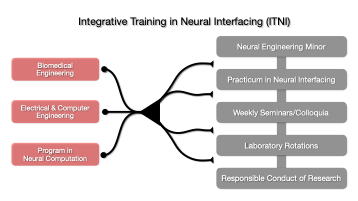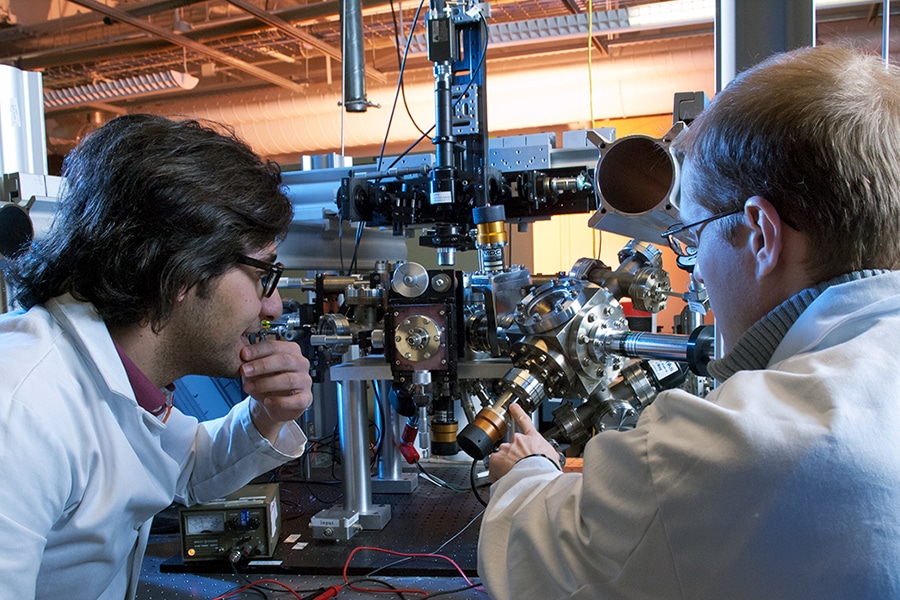Neural Interfacing Training Program
The T32 training program is a “degree-plus” model in which doctoral students are admitted to one of the participating graduate programs including Biomedical Engineering (BME), Electrical and Computer Engineering (ECE), and Neural Computation (PNC). Students in any of these programs who wish to integrate engineering and computational techniques with systems neuroscience for neural interfacing research compete for Neural Interfacing Fellowships. Each Fellow must complete the coursework, research, and teaching requirements of his or her respective major graduate program, and participate in the training program activities.
T32 students will undertake the coursework needed for their major field and will complete 4 courses.
- Students will take 03-763 “Advanced Systems Neuroscience”, which provides a solid knowledge base in systems neuroscience. This course focuses on the integrative functioning of the nervous system, and discusses anatomy, sensory systems, motor function, regulatory systems, and behavior.
- Students will also take 2 of the following 5 courses: A) 42-688 “Introduction to Neural Engineering”. The course objective is to familiarize students with a range of neural engineering approaches to investigating and intervening in the nervous system, emphasizing quantitative understanding and fundamental engineering concepts. The course pairs lectures with analysis projects involving programming with real neural data. The course is self-contained in that it requires minimal mathematical pre-requisites, but will cover relevant mathematical materials in class. B) 36-759 “Statistical Models of the Brain”; C) 42-631 “Neural Data Analysis”, D) 42-632/18-698 “Neural Signal Processing”; and E) 18-612 Neural Technology: Sensing and Stimulation.
- Trainees will be required to take 42-665 “Brain-Computer Interfaces: Principles and Applications”. This course will give an in-depth presentation of the theory and practice of neural interfacing, including the design principles and operation of neural interfacing systems, and the mathematical and computational principles underlying the operation of these devices.
T32 students will undergo lab rotations including a laboratory outside their major in the summer between the first and second years, to identify advisor(s) and co-advisor for thesis research, and to gain exposure to how various labs use neural interfacing technology in a real-world experimental and clinical setting and a corresponding understanding of the capabilities and limitations of these technologies.
T32 students will participate in the biweekly seminar series in Neural Engineering, and in the biweekly Neural Interfacing Colloquium, where T32 students will present their research and have faculty-led discussions on ethics and responsible conduct of research, reproducibility, communication skills, leadership skills, and other career skills. Fellows will receive formal training in the ethical conduct of research and career skills.

